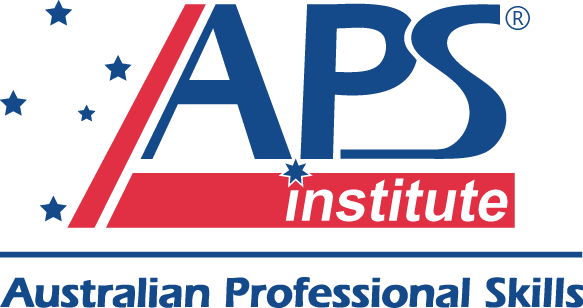
Diploma of Community Services (Case Management)
|
|
CRICOS Course Code: 113105GVET National Code: CHC52021 |
Course Description
This qualification reflects the role of community services workers involved in the delivery, management and coordination of person-centred services to individuals, groups, and communities.
At this level, workers have specialised skills in community services and work autonomously within their scope of practice under broad directions from senior management.
Workers support people to make change in their lives to improve personal and social wellbeing and may also have responsibility for the supervision of other workers and volunteers. They may also undertake case management and program coordination.
To achieve this qualification, the candidate must have completed at least 200 hours of work as detailed in the Assessment Requirements of units of competency.
The skills in this qualification must be applied in accordance with Commonwealth and State or Territory legislation, Australian standards and industry codes of practice.
No occupational licensing, certification or specific legislative requirements apply to this qualification at the time of publication.
In this course you will learn how to:
- Communicate effectively with and advocate on behalf of clients
- Apply counselling techniques
- Work effectively with diverse clients on one-on-one or in groups
- Apply all aspects of case management
- Implement community development strategies
- Understand the impacts of sociological factors on clients
Relevant Job Roles
At this level, workers have specialised skills in community services and work autonomously under broad directions from senior management. Workers are usually providing direct support to individuals or groups of individuals. Workers may also have responsibility for the supervision of other workers and volunteers and/or case management; roles may provide support, recruitment, performance management, risk management, advocacy or interventions to individuals, groups or communities and range from working under the direction and supervision of others to managing the programs and services themselves.
Unit Code |
Unit Name |
Core Units |
|
| CHCCCS004 | Assess co-existing needs |
| CHCCCS007 | Develop and implement service programs |
| CHCCCS019 | Recognise and respond to crisis situations |
| CHCCSM013 | Facilitate and review case management |
| CHCDEV005 | Analyse impacts of sociological factors on people in community work and services |
| CHCDFV001 | Recognise and respond appropriately to domestic and family violence |
| CHCDIV001 | Work with diverse people |
| CHCDIV002 | Promote Aboriginal and/or Torres Strait Islander cultural safety |
| CHCLEG003 | Manage legal and ethical compliance |
| CHCMGT005 | Facilitate workplace debriefing and support processes |
| CHCPRP003 | Reflect on and improve own professional practice |
| HLTWHS003 | Maintain work health and safety |
Elective Units |
|
| CHCCSM009 | Facilitate goal-directed planning |
| CHCCSM010 | Implement case management practice |
| CHCCSM012 | Coordinate complex case requirements |
| CHCCSM014 | Provide case management supervision |
| CHCCOM003 | Develop workplace communication strategies |
| CHCDIV003 | Manage and promote diversity |
| CHCPRP001 | Develop and maintain networks and collaborative partnerships |
| HLTAID011 | Provide First Aid |
Course Fees
- Australian/Domestic Student Fees
(includes international students in Perth completing a secondary course) - International Student Fees
Mode of Delivery
A combination of face-to-face delivery and workplace training.
Course Duration
64 weeks (5 terms) which includes a minimum of 200 hours of workplace training.
Timetable
Students need to attend face-to-face training for a minimum of 20 contact hours per week.
Class hours: Monday to Friday - between 9 am to 5 pm.
Timetables/Delivery Schedules/Classes are subject to change without prior notice. Students will be given a timetable prior to course commencement.
Workplace Training
Students are required to complete a minimum of 200 hours of workplace training in community service-related areas.
Admissions Requirements
Domestic Australian Students
- For direct entry into Diploma level courses, students must have completed a minimum of Year 12 schooling or equivalent or to be a mature age student (20 years of age and above) with relevant work experience.
- Students who have not completed Year 12 are permitted to study a certificate-level course at APSI prior to the diploma.
- Students need to demonstrate they have proficiency in English. If students cannot provide documented proof of their English language proficiency, they will be required to sit for a Language, Literacy and Numeracy (LLN) test before a place can be offered.
International Students
- Australian Professional Skills Institute is CRICOS registered (CRICOS Provider Code 03255G). All students must be over 18 years of age before they can commence this course at APSI.
- International students are required to have a minimum of IELTS test results of 5.5 (academic) with no individual band lower than 5, or achieve an equivalent in other forms of testing that satisfy the Institute’s requirement. If an international student does not have any current IELTS score or any recognised English language result, they are required to take an English language test.
- For direct entry into Diploma level courses, students must have completed a minimum of Year 12 schooling or equivalent or to be a mature age student (20 years of age and above) with relevant work experience.
- Students who have not completed Year 12 are permitted to study a certificate-level course at APSI prior to the diploma.
Assessment Methods
- Classroom exercises
- Assignments
- Practical demonstrations
- Group Activities
- Projects
- Verbal and/or written questions
- Field visits
Workplace learning and assessment will be carried out in aged care homes by workplace supervisor and in accordance with log books.
Uniform
Australian Professional Skills Institute will provide a uniform to all Aged Care and Home and Community Care students while they undertake the theory classes and workplace training.
All learners are required to wear an APSI uniform while attending workplace training in accordance with APSI Aged Care and Community Services Dress Code.
Location of Delivery
National Police Clearance
Immunisations
Recognition of Prior Learning (RPL)
RPL
- provides an alternative pathway to achieving a qualification without course attendance
- is a consultative process between with the candidate and the assessor to determine whether the candidate has acquired the requisite learning, skills and knowledge to demonstrate that they have achieved the required learning outcomes or performance criteria of the course or qualification, for which the candidate is seeking
- identifies where appropriate additional learning experiences or training gaps are needed to achieve the course or qualification
- is the conduct of an assessment to confirm competency.
APSI has developed a process that promotes holistic and task-based assessment. It focuses on relating assessment activities to actual job tasks. The intention of this model is to streamline and simplify the process of recognising competency.
Prior to RPL, information is provided to the candidate on the assessment process. Specific advice is given to each candidate on how they can demonstrate their competence and what documentary evidence is required to support their application. Each industry has unique documents that can provide evidence of experience and competence.
The candidate is required to provide adequate information prior to, throughout and after a training and assessment experience. The assessor, in this process, needs to be fully aware of the needs of the candidate and help them identify relevant workplace personnel who can confirm the candidate’s competency.
The focus of the APSI streamlined holistic assessment process is to focus on demonstrated skills and knowledge and not to rely purely on documentary evidence as the main source of evidence.
Some examples of documentary evidence that can support the process include:
- licences such as First Aid, RSA
- CV or work history with details of job role and responsibilities
- previous qualifications from overseas and Australia
- certificates and records of results or assessments completed with other RTO’s
- photographs of work undertaken
- samples of related project work
- diaries of tasks performed
- task sheets/job sheets/logbooks
- site training records
- pay slips / employment contracts / job descriptions
- memberships of relevant professional associations
- references/letters/third party reports from previous employers/supervisors
- industry awards
- performance appraisals
Articulation
Employment Skills
Potential Career Outcome
- Community Services Worker
- Assistant Community Services Worker
- Accommodation Support Worker
- Family Support Worker
- Welfare Worker
- Community Support Worker
- School Support Officer (working with children with disabilities)
- Community Access Coordinator
- Care Team Leader
- Residential Aide
- Pastoral Care Counsellor or Manager
- Community Care Manager
- Case Coordinator, Worker or Manager (Disability or Community Services)
Disclaimer
The information contained on this website is current at the time of publishing. Australian Professional Skills Institute reserves the right to change the admission requirements, fees, location of delivery and units of competency whenever necessary. Please contact us for the most current information.



